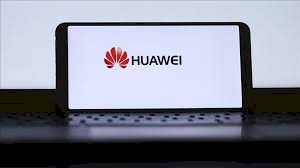
The European Commission Seeks Ways to Force the EU to Phase Out Huawei and ZTE
SadaNews - The European Commission is exploring ways to compel EU member states to gradually phase out "Huawei Technologies" and "ZTE Corp" from their telecommunications networks, according to sources familiar with the matter.
Sources said that Commission Vice President Hina Verkoenen is working to turn the Commission's 2020 recommendation, which calls for halting the use of suppliers classified as "high-risk" in mobile networks, into a legal obligation. The sources requested anonymity due to the confidentiality of the negotiations.
Although decisions regarding infrastructure fall under the purview of national governments, Verkoenen's proposal would require EU countries to align their security policies with the Commission's guidelines. If these recommendations become legally binding, countries that do not comply could face violation proceedings and financial penalties.
Risks to European Interests
The European Union's focus on risks associated with Chinese telecom equipment manufacturers is increasing as trade and political relations with its second-largest trading partner deteriorate. There are concerns that handing over control of sensitive national infrastructure to companies closely linked to Beijing could jeopardize security interests.
Verkoenen is also exploring ways to limit the use of Chinese suppliers in fixed-line networks, as countries are pushing to accelerate the deployment of modern fiber optics to expand high-speed internet access.
The Commission is examining measures to deter non-EU countries from relying on Chinese suppliers, including withholding funding for the "Global Gateway" initiative from countries that use grants for projects involving equipment from "Huawei", according to sources.
Commission spokesperson Thomas Renier said, "The security of our 5G networks is crucial for our economy," declining to comment on the possibility of imposing a ban.
"Huawei" did not respond to requests for comment, while China's foreign ministry has previously criticized the EU's designation of "Huawei" and "ZTE" as high-risk suppliers, arguing that it lacks legal and objective basis.
American depositary receipts for Finnish "Nokia" rose as much as 5% following a Bloomberg report, while Swedish "Ericsson" shares increased by 3.7%.
European Concerns Regarding Chinese Companies
Concerns surrounding "Huawei" and "ZTE" have resurfaced in Europe, as Germany and Finland consider tightening restrictions on Chinese suppliers, according to Bloomberg News. While countries like the UK and Sweden have banned Chinese suppliers for years, nations like Spain and Greece still allow their use in networks. Advocates for a tough stance on China in the EU warn that this uneven approach poses a significant security risk.
However, banning certain suppliers is expected to provoke a political battle, as countries have long resisted ceding decision-making authority on "Huawei" to the Commission, while telecommunications companies oppose new restrictions on the grounds that "Huawei" technology is cheaper and better than Western alternatives.
This issue first emerged during the first term of former U.S. President Donald Trump, when Washington banned "Huawei" and heavily pressed European countries to follow suit.
At that time, the Commission established what is known as the "5G Toolbox", encouraging countries to exclude high-risk suppliers from critical infrastructure and radio networks. However, EU member states were not obligated to follow it, as infrastructure and national security issues remain within their sovereign authority.
5G Toolbox
Renier stated, "The Commission urges member states that have not yet implemented the 5G Toolbox to swiftly and effectively adopt the relevant measures to address risks," adding that "a delay in action poses clear risks to the entire EU."
Sweden had imposed a complete ban on "Huawei", but the move elicited a strong backlash from China, deterring other nations from taking a similar stance.
Later, former European Commissioner Thierry Breton sought to increase pressure on countries by specifically naming "Huawei" and "ZTE", a shift from previous references to "high-risk suppliers" without naming them. He also pledged to remove their technologies from the Commission's own networks, but this step did not prompt national capitals to act.
As Trump began his second term this year, the European telecommunications sector expected renewed scrutiny into the roles of Chinese technology companies in Europe. Meanwhile, Finnish "Nokia" continues to compete with "Huawei", warning against the spread of the latter's technologies in European networks while China works to exclude "Nokia" and other Western suppliers from its domestic market.

Scientists Attempt to "Intercept Cancer" Before Its Formation.. Know the Details

American Fact-Checking Platform Exposes Trump's Exaggerations in State of the Union Addres...

How Mourinho Deceived Everyone and Watched the Match Between Real Madrid and Benfica from...

Fat Loss Improves Blood Pressure and Supports Immunity

Galaxy S26 Armed with a Smart Feature to Combat the Most Dangerous Threats to Smartphones

Discovery of Microplastic Particles in 90% of Prostate Cancer Cases

Artificial Intelligence Diagnoses Children's Brain Tumors with 92% Accuracy Without Surger...

